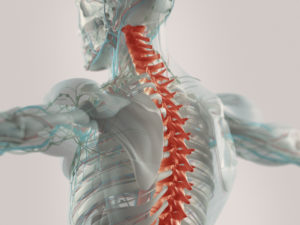A story of a mysterious, unexplained hospital death in Texas has placed a spotlight on the need for autopsy rights and autopsy reforms. According to an article by Marshall Allen, Jerry Carswell was found dead in his hospital bed at about 5:30 a.m. on January 22, 2004. The 61-year-old had been admitted for kidney stones but overnight had been administered a couple of different drugs. Hospital staffers had performed CPR for 25 minutes before he was pronounced dead that early morning. His wife, Linda, sought answers from the hospital but received no explanation of the cause of death that satisfied her.
Linda had been married 33 years to Jerry, and had raised their two sons and was an English teacher at one of Houston's private schools.
She asked the hospital administrator whether a private autopsy could be done and was told it could cost up to $10,000.00. The hospital offered to provide an autopsy for free, but Mrs. Carswell was not eager to take that offer. Once the administrator assured her a private autopsy would be independent and performed by a pathologist at a different hospital, Carswell agreed to a complete autopsy.
What Carswell didn't know could make a serious difference: the other hospital was co‑owned by the same company, and the pathologist who was going to do the autopsy was employed by a group that had privileges at both hospitals including the one where Jerry, her husband, died.
Another stunning fact: the complete autopsy that she ordered did not include any toxicology tests on her husband's blood or urine, the tests that would have shown whether medication error could have led to his death. In any case, the early or preliminary report by the pathologist had suspected a heart attack, but the final result did not include that as any cause of death. The "complete autopsy" was never completed, once Mrs. Carswell wrote a letter to the hospital demanding preservation of all tissue and fluid samples. The pathologist involved in the autopsy stopped all work and claimed that this was a threat of legal action.
Ultimately one of the other doctors filled in the death certificate, asserting that the cause of death was "natural". Ultimately, Mrs. Carswell hired attorneys, and sued the hospital, alleging negligence and fraud relating to how the hospital disclosed the nature of the private autopsy to her.
During the lawsuit process, Carswell, through her lawyers, learned that the pathologist, without telling the family or any other person, had actually kept part of Jerry's heart as a tissue sample. It had never been returned to the family for purposes of burial. Nor had any tests that he planned to do been cleared with her in advance and no test results were actually provided.
Ultimately a judge fined the hospital $250,000.00 for improperly keeping Carswell's heart without permission, and finally over five years later, a Texas jury found the hospital had committed fraud when obtaining her consent to the "complete autopsy." The jury awarded $2 million, which included $1 million in punitive damages, but the case is currently on appeal in the State of Texas. In the same suit, Linda Carswell lost her general negligence claim against the hospital. Of course, she and her attorney assert that it was almost an impossible negligence case because of the evidence withheld from the autopsy, that might have shown prescription or medication error.
Our firm has been involved in several cases where families have desired a private autopsy. State laws are confusing and answers are very difficult for families to obtain. If an accidental or mysterious death occurs in a hospital, can a family trust the hospital to give accurate information about autopsy rights, without a conflict of interest if the hospital believes there is possible medical malpractice?
Should the hospital be able to steer the family to a pathology that it trusts or that it has a prior relationship with? These are some of the answers that require legal reforms. Ultimately, in Texas, Linda Carswell and a state representative named Bill Callegari, introduced Texas legislation requiring doctors to use standardized forms to simplify the autopsy system and the Act ultimately went into effect September 2011 and is known as the Jerry Carswell Memorial Act.
The Act sets forth circumstances under which a medical examiner is required to conduct investigations, discloses that survivors have a right to an independent pathologist who can conduct a clinical autopsy, and various other rights are disclosed to families.
Virginia and North Carolina and other states could benefit from reforms that at the minimum require that hospitals disclose any potential conflict of interest in references or referrals, and set forth the nature and types of autopsies that can be arranged privately. There are many accidental deaths involving medical errors or medication or drug mistakes that make families want to learn the truth. This is exactly where legal reforms are appropriate, as they certainly don't change anything about the level of proof that is required to prevail in a wrongful death action, but they require more transparency where family rights come into play.
About the Editors: Our personal injury law firm has offices in Virginia (VA) and North Carolina (NC). The attorneys with the firm publish and edit articles on three Legal Examiner sites for the geographic areas of Virginia Beach, Norfolk and Northeast North Carolina as a pro bono service to the general public.
PA









Comments for this article are closed.